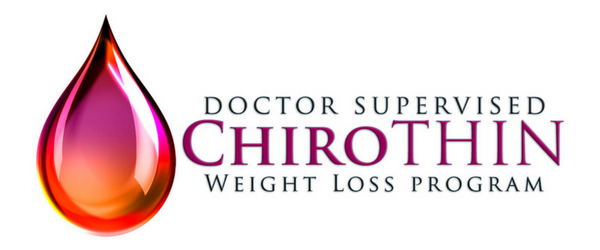
There are four main muscle groups that make up your core. When people talk about their abs, they are usually referring to one of the muscle groups within the abdominal wall: the rectus abdominis muscle.
Yet, this is not the only muscle to worry about. You also need to strengthen your transversus abdominis, external obliques, and internal obliques.
Doing ab exercises for all four of these muscles is critical if you want to benefit more than just your appearance.
Strengthening these muscle groups can also help with day-to-day functional movements, back pain, and age-related muscle atrophy.
Here are six ab exercises to help you do just that.
1. The Plank
The transversus abdominis is the deepest layer of muscle within your core. It stretches from the bottom of your ribs to the top of your pelvis. This muscle’s main goal is to support your spine and enable movement.
One of the most popular exercises to try if you want to strengthen your transversus abdominis is the humble plank. Planks also work out other ab muscle groups for a well-rounded core. Here’s how to do a plank.
Step 1: Get into a pushup position on the floor.
Step 2: Push yourself up off the floor. Your arms should extend straight down below your shoulders. Space your fingers apart to reduce tension on your wrists. Your feet should be shoulder-width apart.
Step 3: Engage your core and hold the plank for as long as possible, making sure to engage your ab muscles. To engage your core, suck your belly button toward your spine, but do not lift up your hips.
Step 4: Return to the pushup position and rest before repeating these steps.
2. The Dead Bug
The Dead Bug is another great exercise to work your transversus abdominis muscle. Here’s how it works.
Step 1: Lay on the floor and raise your arms straight up toward the ceiling.
Step 2: Bend your knees 90 degrees and lift your legs parallel to your arms.
Step 3: Straighten one leg parallel to the floor while reaching the opposite arm behind your head. Your arm should be parallel to the floor, too.
Step 4: Engage your abs, making sure to keep your arm and leg off the floor.
Step 5: Return to your starting position and repeat the exercise on the opposite side.
3. Reverse Crunches
As we mentioned, the rectus abdominis is the muscle that comes to mind when most people think of their abs. It is also known as the six-pack muscle.
The rectus abdominis stretches from the ribs to the pubic bone. It sits in front of the transversus abdominis muscle. The main purpose of the rectus abdominis is to flex the region of the torso between the ribs and pelvis.
Crunches are classic strengthening exercises for this muscle. Mix up your ab workout with reverse crunches. Here’s how.
Step 1: Lay on the floor in a crunch position. Instead of placing your hands over your chest or behind your head, flatten your palms to the floor beside your torso.
Step 2: Bend your legs and lift your pelvis off the floor until your quads are at a 90-degree angle to the floor. Ensure you are using your core and spine to lift your legs, not your hips.
Step 3: Engage your abs throughout the exercise. If you need a modification, press your palms into the floor to help you lift your pelvis off the ground.
Step 4: Lower your legs to the floor and repeat for as many reps as you can.
4. Jack Knife Crunches
Another variation of the classic crunch is the Jack Knife. This is another great strength training workout for your rectus abdominis. Here’s how to do a Jack Knife crunch.
Step 1: Lay on the floor with your legs extended and arms raised straight behind your head.
Step 2: Engaging your core and keeping your back flat on the floor, curl your legs into your chest. At the same time, bring your arms forward. Your arms should end parallel to the floor and perpendicular to your quads.
Step 3: Hold the Jack Knife position for a few seconds before lowering back to your starting position.
Step 4: Repeat the above as many times as possible.
5. Russian Twists
The external obliques are muscles that sit on each side of your abdomen. Their primary purpose is to help your trunk twist from side to side.
The internal oblique muscles are located beneath the external obliques. They serve a similar role as external obliques, helping the torso twist and turn to each side.
Russian twists are great exercises for both sets of obliques. You can even add a medicine ball weight to make this workout even more challenging.
Here are the steps for a Russian Twist.
Step 1: Sit on your buttocks with your knees bent and your torso tilted at a 45-degree angle to the floor.
Step 2: Lift your feet off the floor. For an easier modification, you can keep your feet flat on the floor, too.
Step 3: Clasp your hands in front of your chest, engage your core, and twist your clasped hands to one side, touching them to the floor.
Step 4: Repeat this movement on the other side and alternate back and forth for as many reps as you can.
6. Side Crunches
Yes, the humble crunch is back! But these modified crunches can help work your external and internal obliques. Here’s how to do a side crunch.
Step 1: Lay on your back and bend your legs to one side.
Step 2: Support your neck with your hands and engage your abs, lifting as far off the floor as you can.
Step 3: Lower back to the floor and repeat for as many reps as you can.
Step 4: Switch your legs to the other side and repeat steps 1–3.
ChiroThin: When These Ab Exercises Aren’t Enough
These six ab exercises can help strengthen all four layers of your core. Unfortunately, these workouts alone are not always enough to get abs. That is where a weight loss program like ChiroThin can come in.
Are you ready to get started on the path to a healthier you? Click here to find a ChiroThin doctor in your area.
